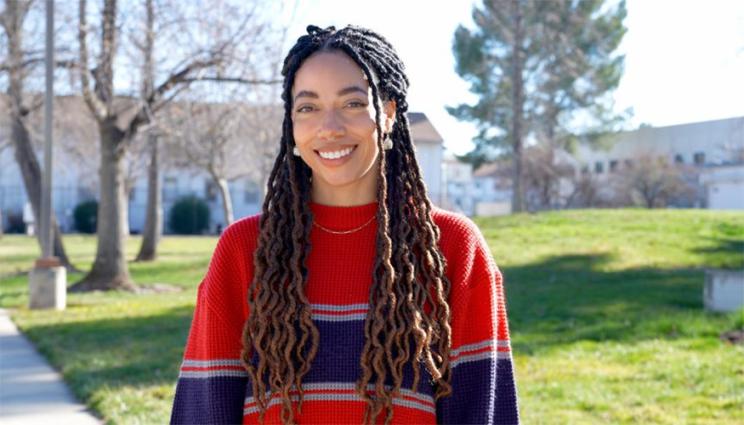
Lauren Casonhua would like to see the Lab shift to a more humanized, storytelling-focused approach to employee communications. Photo by Blaise Douros/LLNL.
Lauren Casonhua's journey to the Lawrence Livermore National Laboratory (LLNL) begins with a love of stories. Growing up in Texas, she remembers returning home after each library visit with a stack of fiction books under her arm.
"There's something so incredible about immersing yourself in a different world and really seeing it through the protagonist's eyes," she said. "I've always loved fantasy and sci-fi and dreamed of being an author myself, but until more recently I had not seen a lot of diverse representation, including Black characters and authors, in those genres."
Casonhua recently began a new role as deputy director for employee and culture communications for the Laboratory after having served as a writer and communications specialist for different Lab groups, including the Director's Office and Operations & Business Directorate, for the last seven years.
"My vision is to really see the Lab shift to a more humanized, storytelling-focused approach to employee communications," she said. "Having worked on communications strategy during challenging times in the pandemic, I've personally seen how important it is to find better ways to communicate and connect with people as people, and not just as employees."
One of Casonhua's goals is to see communications used as a tool to encourage people from underrepresented backgrounds to apply for jobs at the Lab, and to remind current employees that they are welcomed and valued for who they are.
"We've seen major shifts in some of our demographics since I've joined the Lab - we have a lot of newer and younger employees," Casonhua said. "I'd like to see that same trend when it comes to Black, Indigenous, People of Color (BIPOC), and specifically Black communities."
As a biracial woman, Casonhua says she's experienced racism in different forms, both within and outside of the Black community, and emphasized the importance of intentional inclusion and fostering a sense of belonging, particularly for underrepresented groups.
"I think there are probably multiple factors, including systemic reasons, for why we don't see as many Black people in STEM fields, for example," she said. "One reason being that they haven't seen as many role models like themselves in those positions."
As she takes on her new role, she sees an important opportunity: "I want to help illuminate the stories of our diverse communities."






